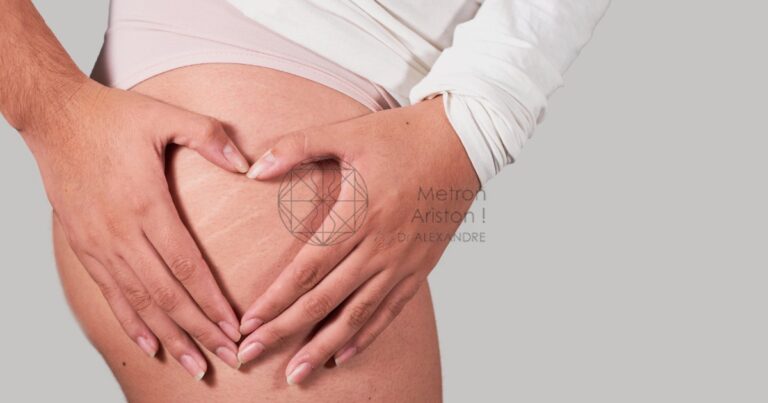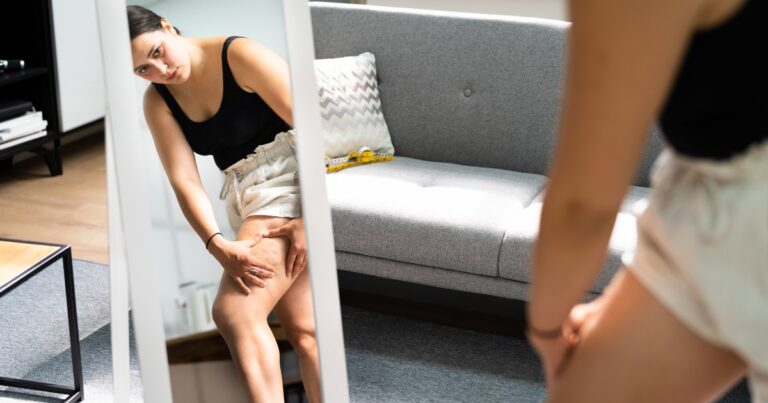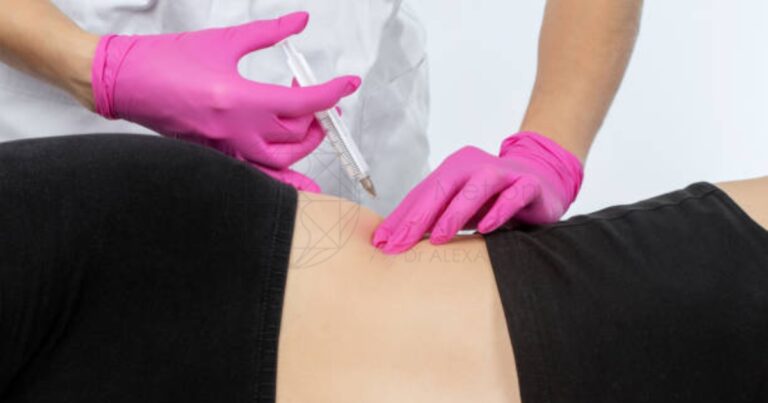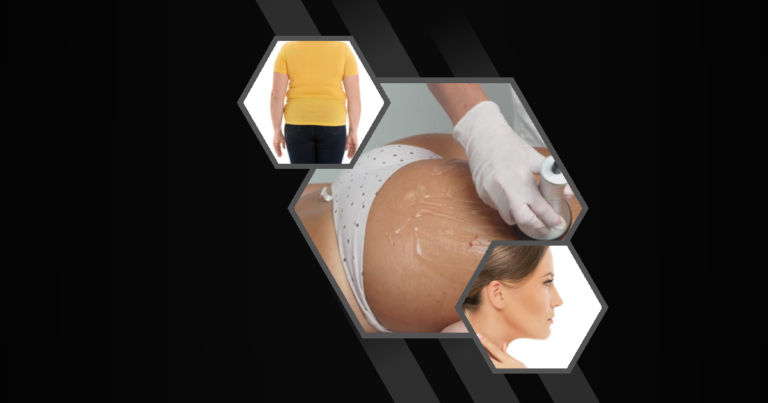Can Liposuction Help a Fatty Liver
What is nonalcoholic fatty liver disease (NAFLD)?
Nonalcoholic fatty liver disease (NAFLD) is a condition where excess fat builds up in the liver of people who drink little or no alcohol. It is a common liver disorder, affecting about 24% of U.S. adults, according to the National Institute of Diabetes and Digestive and Kidney Diseases. NAFLD can progress to more severe liver damage, including nonalcoholic steatohepatitis (NASH), fibrosis, and cirrhosis.
- NAFLD is prevalent among adults in the U.S.
- It can lead to severe liver conditions if untreated.
- Lifestyle factors often contribute to its development.
How liposuction works
Liposuction is a cosmetic procedure designed to remove excess fat from specific areas of the body. It involves the use of a suction technique to extract fat deposits, typically from the abdomen, thighs, buttocks, or arms. While liposuction effectively reduces localized fat, it is not a weight-loss solution and does not address visceral fat, which is the type of fat associated with fatty liver.
- Liposuction targets subcutaneous fat, not visceral fat.
- It is primarily a cosmetic procedure.
- Not intended for overall weight loss.
Potential benefits of liposuction for fatty liver
While liposuction is not a direct treatment for fatty liver, it may offer some indirect benefits. By improving body contour and potentially encouraging healthier lifestyle choices, individuals may be motivated to maintain a healthier weight, which can positively impact liver health. However, the procedure itself does not remove liver fat or improve liver function.
- May encourage healthier lifestyle habits.
- Can improve body image and self-esteem.
- Does not directly affect liver fat.
Liposuction and Liver Health
Impact of fat removal on liver function
The removal of subcutaneous fat through liposuction does not directly impact liver function. The liver’s health is more closely related to visceral fat, which is not targeted by liposuction. Therefore, while liposuction can enhance physical appearance, it does not address the underlying causes of fatty liver.
- Liposuction does not target visceral fat.
- Liver function remains unchanged post-procedure.
- Focuses on cosmetic improvements.
Alternative Treatments for Fatty Liver
Lifestyle modifications
Lifestyle changes are the cornerstone of managing fatty liver disease. Regular exercise, a balanced diet, and weight loss can significantly improve liver health. Reducing sugar and saturated fat intake while increasing fiber and protein can help reduce liver fat.
- Exercise and diet are crucial for liver health.
- Weight loss can reduce liver fat.
- Focus on balanced nutrition.
Medications for NAFLD
While there are no specific medications approved for NAFLD, certain drugs may help manage symptoms or associated conditions. Medications for diabetes, high cholesterol, or obesity can indirectly benefit liver health. Always consult a healthcare provider before starting any medication.
- No specific drugs for NAFLD.
- Medications for related conditions may help.
- Consult a doctor for personalized advice.
Antioxidants and cytoprotective agents
Antioxidants and cytoprotective agents may offer some benefits for individuals with fatty liver. These substances can help reduce oxidative stress and protect liver cells from damage. Supplements like vitamin E and omega-3 fatty acids are often recommended, but their effectiveness varies.
- Antioxidants may reduce liver stress.
- Supplements like vitamin E can be beneficial.
- Effectiveness varies among individuals.
Liposuction and Metabolic Health
Effects on insulin sensitivity
Liposuction may have some effects on insulin sensitivity, although these are not well-documented. While the procedure can improve body contour, its impact on metabolic health, including insulin sensitivity, is limited.
- Limited impact on insulin sensitivity.
- Primarily a cosmetic procedure.
- More research is needed on metabolic effects.
Changes in lipid profile
Liposuction does not significantly alter the lipid profile. While it removes subcutaneous fat, it does not affect cholesterol levels or other blood lipids. Patients should focus on lifestyle changes for lipid management.
- No significant changes in lipid profile.
- Focus on lifestyle for lipid management.
- Liposuction targets cosmetic fat.
Impact on overall body composition
Liposuction can improve overall body composition by removing localized fat deposits. However, it does not address visceral fat or overall body weight. Patients should combine liposuction with healthy habits for optimal results.
- Improves body contour.
- Does not affect visceral fat.
- Combine with healthy habits for best results.
Combining Liposuction with Other Treatments
Synergistic effects of lifestyle changes
Combining liposuction with lifestyle changes can enhance results. While liposuction improves body contour, lifestyle modifications can address underlying health issues, including fatty liver. This combination can lead to better long-term outcomes.
- Enhances results when combined with lifestyle changes.
- Addresses underlying health issues.
- Leads to better long-term outcomes.
Complementary therapies for liver health
Complementary therapies, such as dietary supplements and exercise programs, can support liver health alongside liposuction. These therapies can help reduce liver fat and improve overall well-being.
- Supports liver health alongside liposuction.
- Includes supplements and exercise.
- Improves overall well-being.
Long-term management strategies
Long-term management of fatty liver involves ongoing lifestyle changes and regular medical check-ups. Patients should focus on maintaining a healthy weight, balanced diet, and regular exercise to prevent disease progression.
- Focus on ongoing lifestyle changes.
- Regular medical check-ups are essential.
- Prevents disease progression.
Consultation and Assessment
Evaluating candidacy for liposuction
Evaluating candidacy for liposuction involves assessing overall health, liver function, and body composition. A thorough consultation with a healthcare provider ensures the patient is a suitable candidate for the procedure.
- Assess overall health and liver function.
- Consultation ensures suitability.
- Important for safe procedure outcomes.
Liver function tests and imaging
Liver function tests and imaging are crucial before liposuction. These assessments help determine the liver’s health and ensure there are no contraindications for the procedure.
- Crucial for assessing liver health.
- Ensures no contraindications.
- Important for safe surgery.
Personalized treatment plans
Personalized treatment plans are essential for addressing individual health needs. These plans consider the patient’s liver health, body composition, and overall goals to ensure optimal outcomes.
- Tailored to individual health needs.
- Considers liver health and goals.
- Ensures optimal outcomes.
Recovery and Follow-up Care
Post-liposuction monitoring of liver health
Monitoring liver health after liposuction is important to ensure no adverse effects. Regular check-ups and liver function tests help track progress and address any concerns.
- Important to ensure no adverse effects.
- Regular check-ups are essential.
- Helps track progress.
Lifestyle recommendations after the procedure
After liposuction, patients should follow lifestyle recommendations to maintain results. A balanced diet, regular exercise, and healthy habits are crucial for long-term success.
- Follow lifestyle recommendations for maintenance.
- A balanced diet and exercise are crucial.
- Ensures long-term success.
Long-term outcomes and maintenance
Long-term outcomes of liposuction depend on maintaining a healthy lifestyle. Patients should focus on weight management, regular exercise, and balanced nutrition to sustain results. Liposuction ineffective hipshape means removing fat from hips doesn’t always give the desired shape Some people may still have uneven hips after Liposuction affects glycemia by removing fat cells from the body which can change how the body processes sugar This change in fat tissue can impact insulin sensitivity and blood sugar levels
Liposuction metabolic improvements can help remove extra fat from the body and may lead to better health Cellulite unaffected liposuction removes fat from under the skin but does not change the appearance of cellulite This procedure targets deeper fat layers while cellulite remains in the surface layer of skin
Liposuction wellness effects can help people feel more confident about their body shape and may encourage them to maintain a healthier lifestyle after the procedure Alcohol post liposuction Drinking alcohol after liposuction can be dangerous and slow down healing It’s best to avoid alcohol for a few weeks after the surgery to help your body recover faster
Liposuction pricing UAE varies depending on the clinic and the amount of fat removed but generally costs between 15000 to 40000 dirhams for a single treatment area Liposuction leaves faint marks on the skin where small incisions are made to remove fat These tiny scars usually fade over time and become barely noticeable
- Focus on a healthy lifestyle for maintenance.
- Weight management is key.
- Ensures sustained results.
Latest Research and Developments
Emerging techniques in liposuction
Emerging techniques in liposuction aim to improve safety and effectiveness. Innovations such as laser-assisted liposuction and ultrasound technology offer enhanced results and quicker recovery times.
- Innovations improve safety and effectiveness.
- Laser-assisted and ultrasound techniques.
- Offer enhanced results and recovery.
Advancements in fatty liver treatment
Advancements in fatty liver treatment focus on new medications and therapies. Research is ongoing to develop targeted treatments that address the root causes of NAFLD and improve liver health.
- Focus on new medications and therapies.
- Targeted treatments for NAFLD.
- Ongoing research for better solutions.
Future perspectives in combining cosmetic and metabolic interventions
Future perspectives involve combining cosmetic procedures like liposuction with metabolic interventions for comprehensive health benefits. This approach aims to improve both appearance and overall health.
- Combines cosmetic and metabolic interventions.
- Aims for comprehensive health benefits.
- Improves appearance and health.s).
FAQ’s
Can liposuction reduce liver fat?
Liposuction does not reduce liver fat. It targets subcutaneous fat, which is different from the visceral fat associated with liver health. To reduce liver fat, lifestyle changes such as diet and exercise are more effective.
Is liposuction safe for people with fatty liver?
Liposuction can be safe for individuals with fatty liver, provided they undergo a thorough medical evaluation. It is essential to discuss liver health with a healthcare provider to ensure there are no contraindications.
What is the best treatment for fatty liver?
The best treatment for fatty liver involves lifestyle modifications, including a healthy diet and regular exercise. In some cases, medications or supplements may be recommended by a healthcare provider.
Can losing weight help a fatty liver?
Yes, losing weight can significantly help reduce liver fat and improve liver health. A combination of diet and exercise is the most effective approach to managing fatty liver disease.








